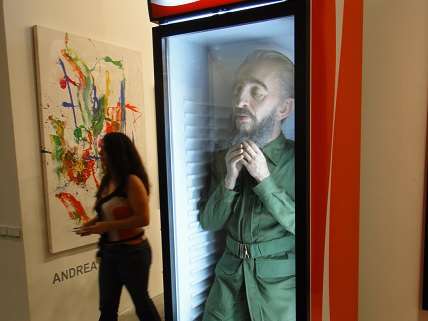Fidel Castro Backs Normalizing U.S.-Cuba Relations, Also Signals He's Not Dead Yet
U.S.-Cuba relations still have a way to go to get to normal.


Eighty eight year old former Cuban dictator Fidel Castro didn't make any public comment after the U.S. and Cuba announced they were working toward normalizing relations between the two countries, frayed since Castro's 1959 revolution. Castro's silence even fueled rumors the long-time dictator, who handed power to his then 76-year-old younger brother in 2008, had died. Castro, who in recent years had written occasional and sometimes erratic commentaries, took to the state media to release a letter tentatively backing renewed U.S.-Cuban relations while distancing himself from the decision.
"I don't trust the policy of the United States, nor have I exchanged a word with them, but this does not mean I reject a pacific solution to the conflicts," he wrote in a letter directed at a student federation at the University of Havana that was also published in Spanish in the Communist Party newspaper Granma. "We will always defend cooperation and friendship with all the people of the world, including with our political adversaries."
The U.S. began to impose trade restrictions on Cuba shortly after Castro took over the government, citing state takeover of property held in the country by U.S. citizens, and despite current attempts to normalize relations sanctions remain legally in place.
The seized assets translate to as much as $6 billion in debt claimed against Cuba by U.S. citizens, and the issue is one of several sticking points left on the road to normalized relations. Earlier this month Cuba released 53 political prisoners as part of the deal with the U.S. Sanctions and travel restrictions, despite some easing, cannot be completely lifted without an act of Congress. The Coast Guard has noted a surge in Cuban refugees, returning 121 to the island just after the U.S.-Cuba deal was announced—U.S. immigration policy toward Cuba, which basically legalizes all migration from Cuba to the U.S. once the migrant has made it to within U.S. borders, hasn't changed but Cubans interested in migrating to the U.S. fear, not unreasonably, that it will.


Show Comments (12)